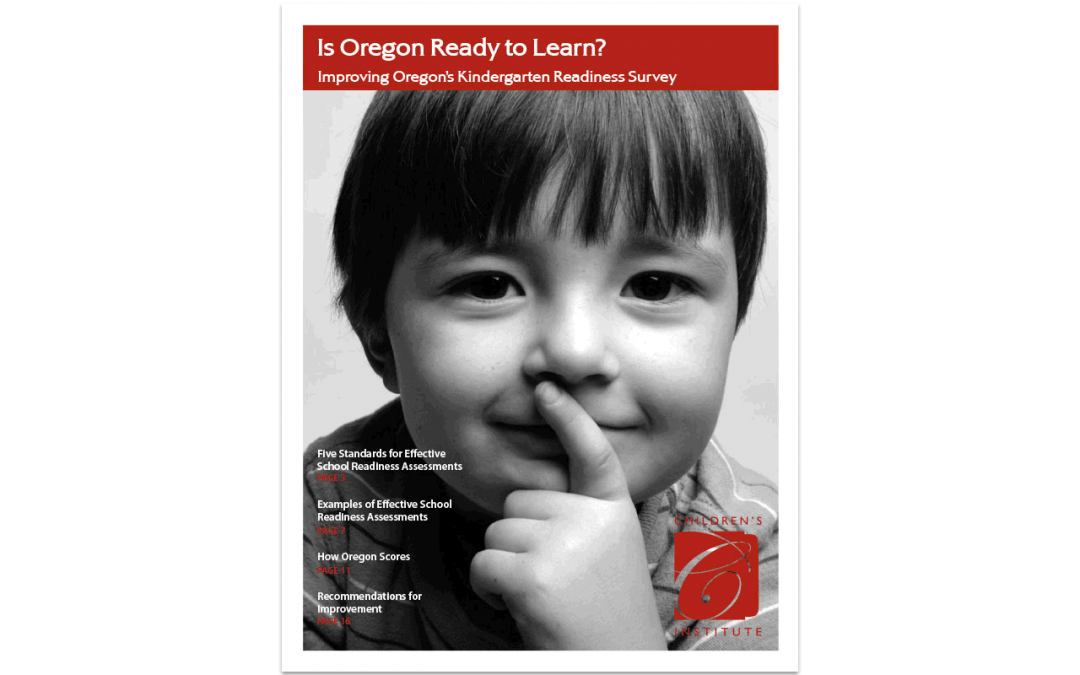
Is Oregon Ready to Learn?
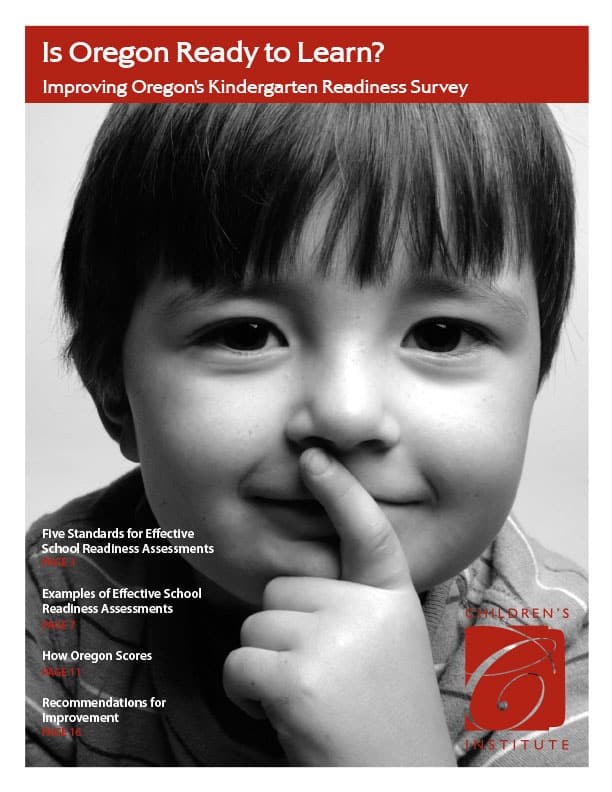 Assessments of school readiness, when done correctly, are useful planning tools. Assessing children as they enter kindergarten allows policy-makers to identify and respond to achievement gaps and communities to determine whether children are prepared for success in school. Well-designed assessments help public officials direct resources effectively and efficiently. On the other hand, poorly designed or poorly administered assessments – even if inexpensive – are not a good use of public resources.
Assessments of school readiness, when done correctly, are useful planning tools. Assessing children as they enter kindergarten allows policy-makers to identify and respond to achievement gaps and communities to determine whether children are prepared for success in school. Well-designed assessments help public officials direct resources effectively and efficiently. On the other hand, poorly designed or poorly administered assessments – even if inexpensive – are not a good use of public resources.
As Oregon and the nation move toward comprehensive data systems that track the education of children from birth through college, now is the time to re-engineer Oregon’s kindergarten readiness survey to provide Oregonians – policy-makers in particular – a useful tool for measuring school readiness.
Click here to view the appendices.

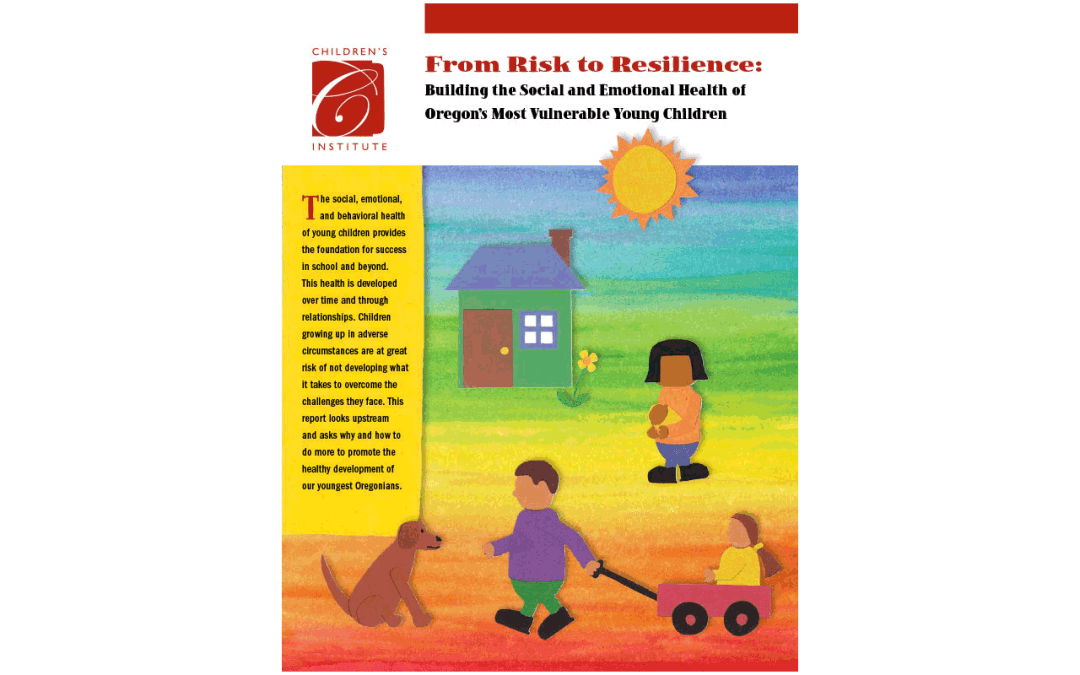
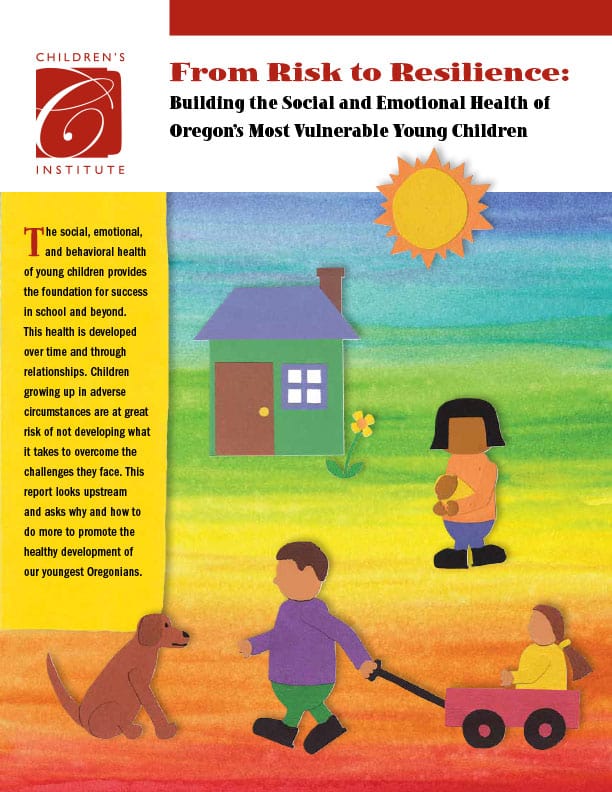 The report, “From Risk to Resilience: Building the Social and Emotional Health of Oregon’s Most Vulnerable Young Children,” highlights why and how the social, emotional and behavioral health of young children provides the foundation for success in school and beyond.
The report, “From Risk to Resilience: Building the Social and Emotional Health of Oregon’s Most Vulnerable Young Children,” highlights why and how the social, emotional and behavioral health of young children provides the foundation for success in school and beyond.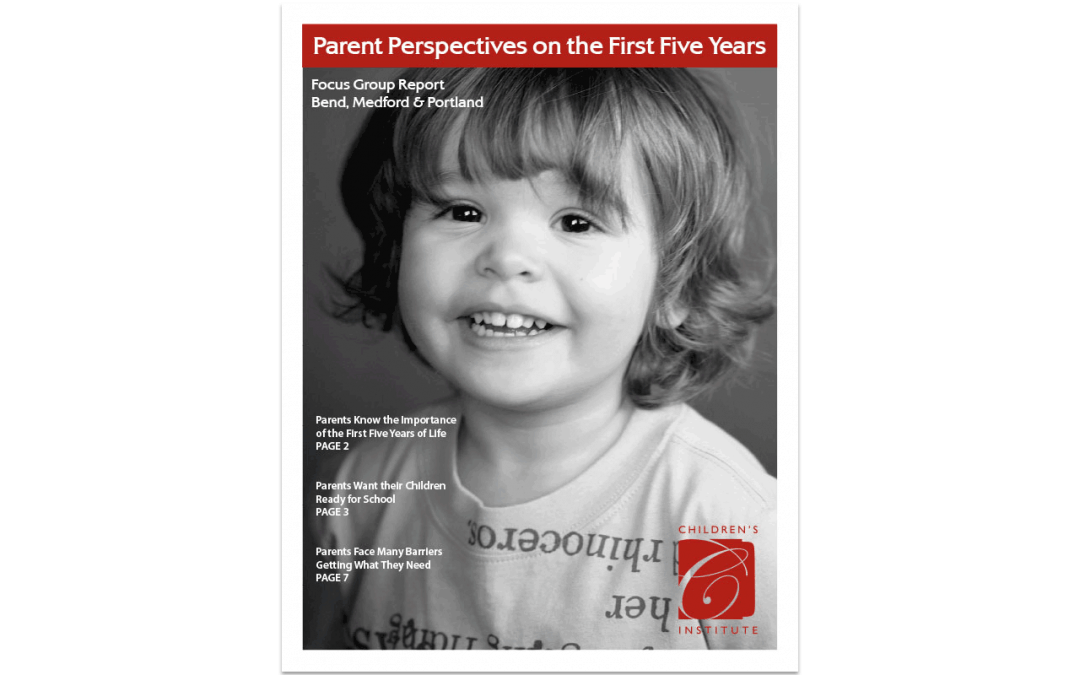
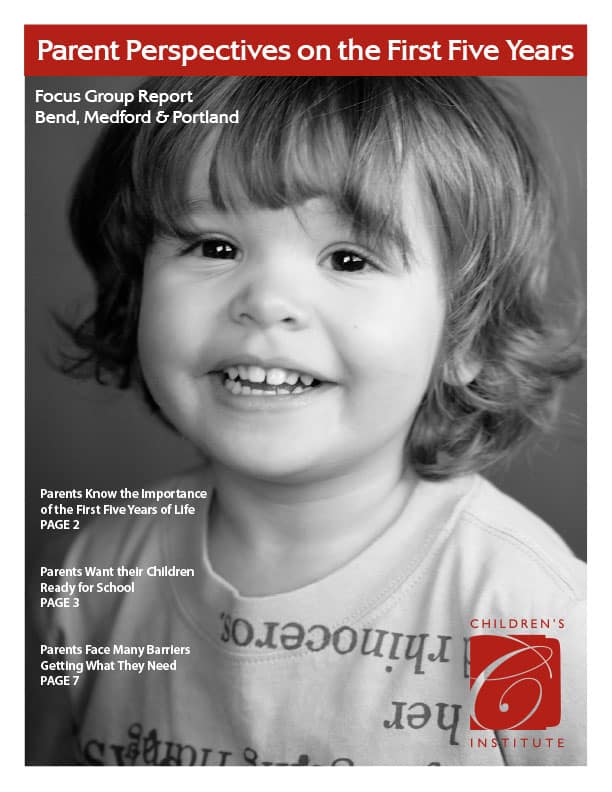 To ensure the perspective of low-income parents is reflected in its public policy agenda, the Children’s Institute commissioned Davis, Hibbitts & Midghall to conduct four focus groups. The research has been designed to assess parents’ understanding of and attitudes toward the first five years of their child’s life, covering topics such as school readiness, child care, and preschool. Participants also discussed what barriers they face in getting what they need to make sure their children have a healthy start during their first five years of life.
To ensure the perspective of low-income parents is reflected in its public policy agenda, the Children’s Institute commissioned Davis, Hibbitts & Midghall to conduct four focus groups. The research has been designed to assess parents’ understanding of and attitudes toward the first five years of their child’s life, covering topics such as school readiness, child care, and preschool. Participants also discussed what barriers they face in getting what they need to make sure their children have a healthy start during their first five years of life.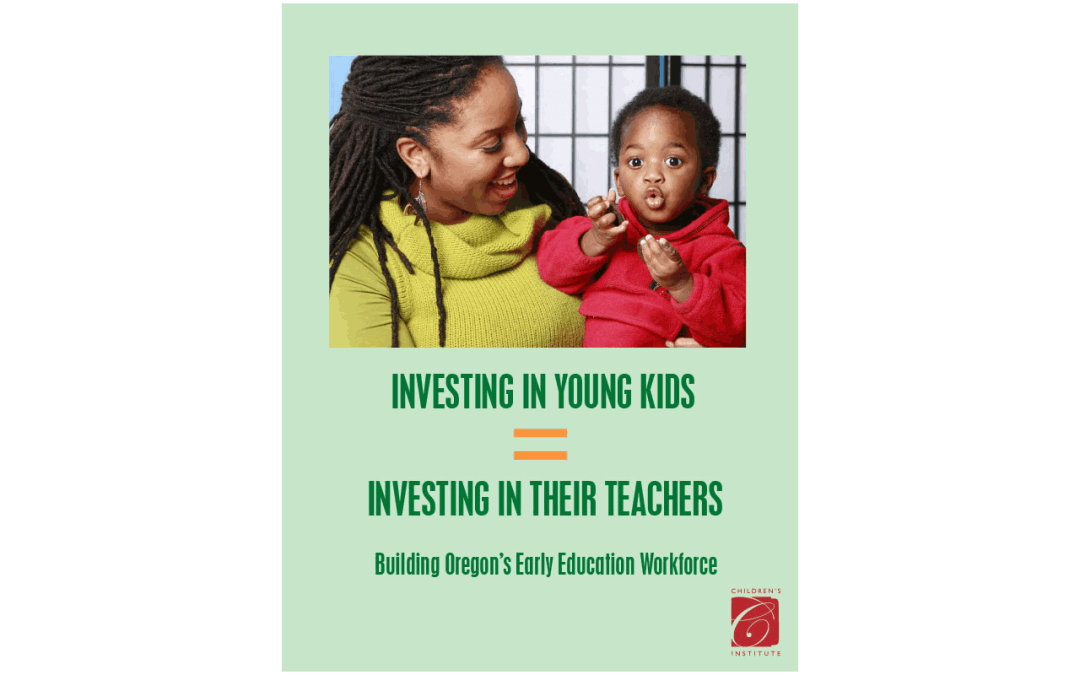
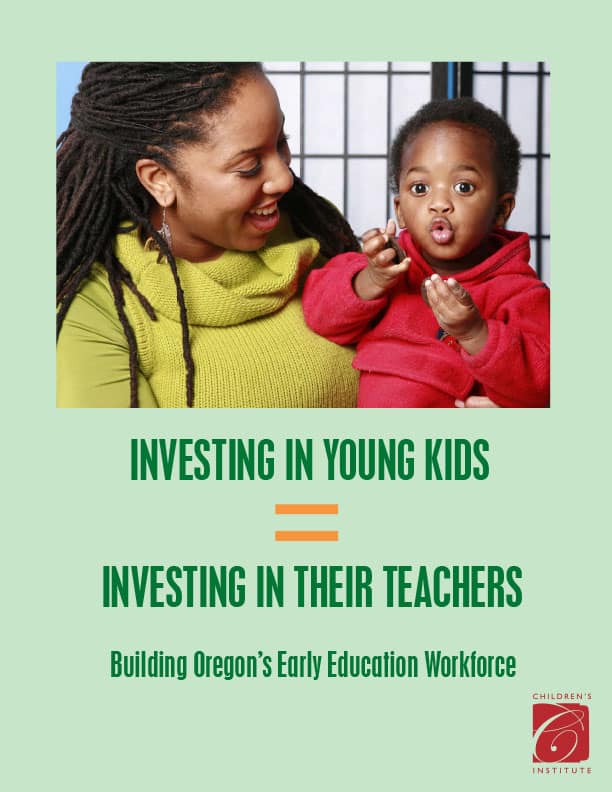 Building Oregon’s Early Education Workforce.
Building Oregon’s Early Education Workforce.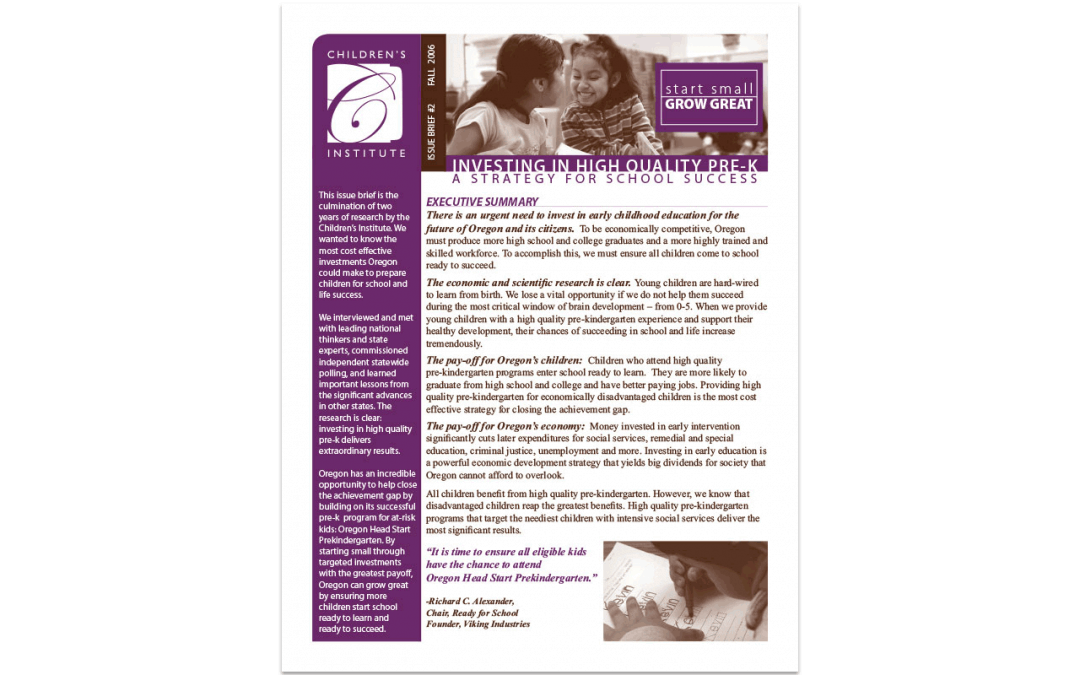
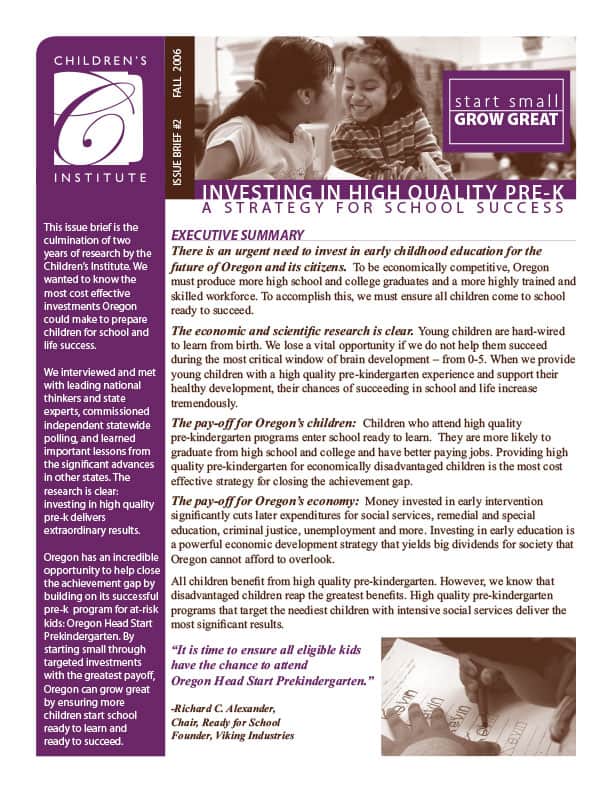 Issue Brief 2
Issue Brief 2